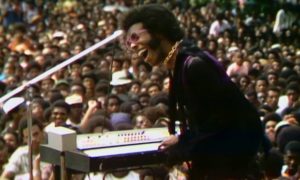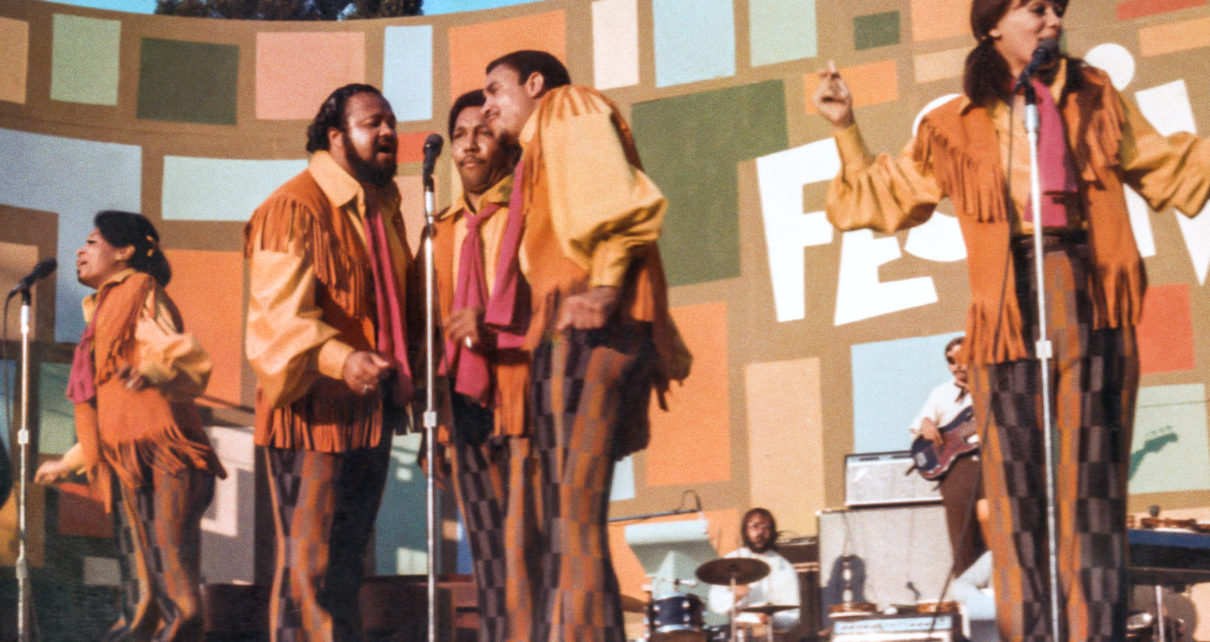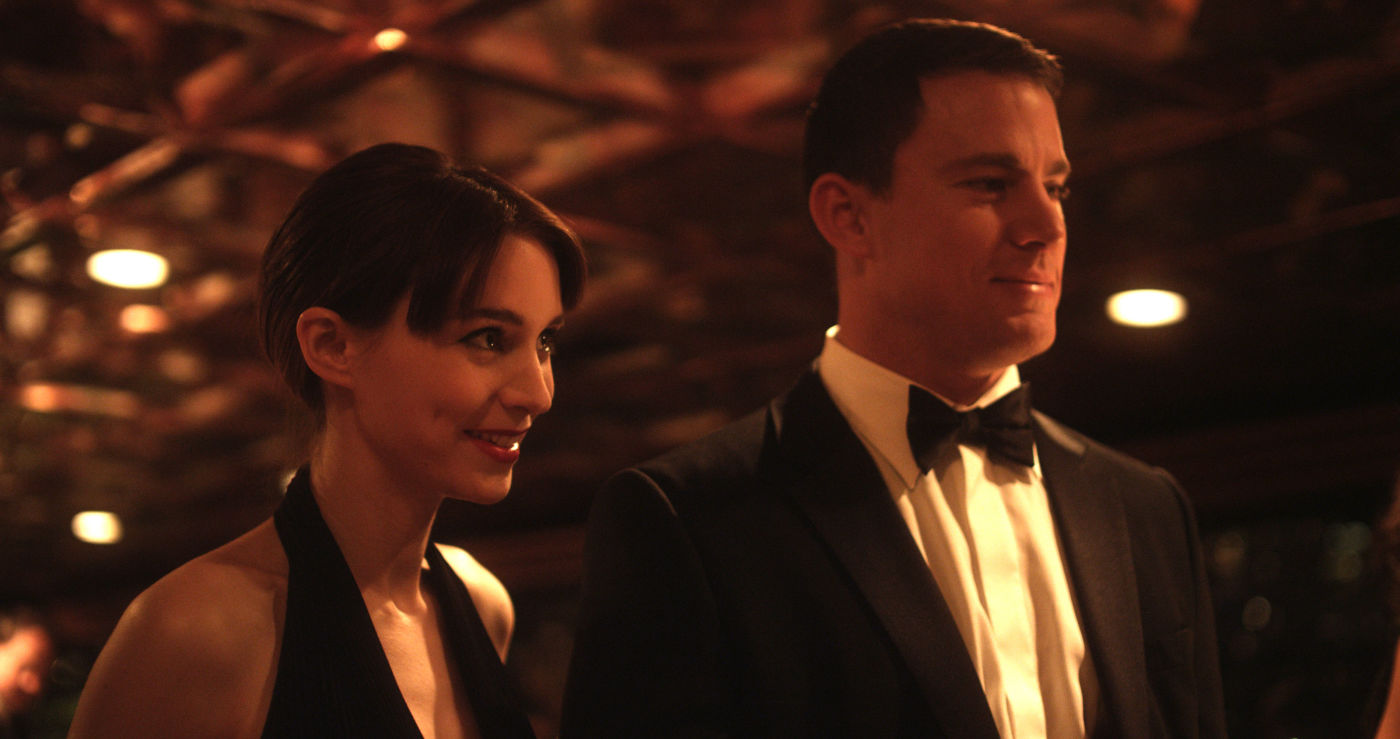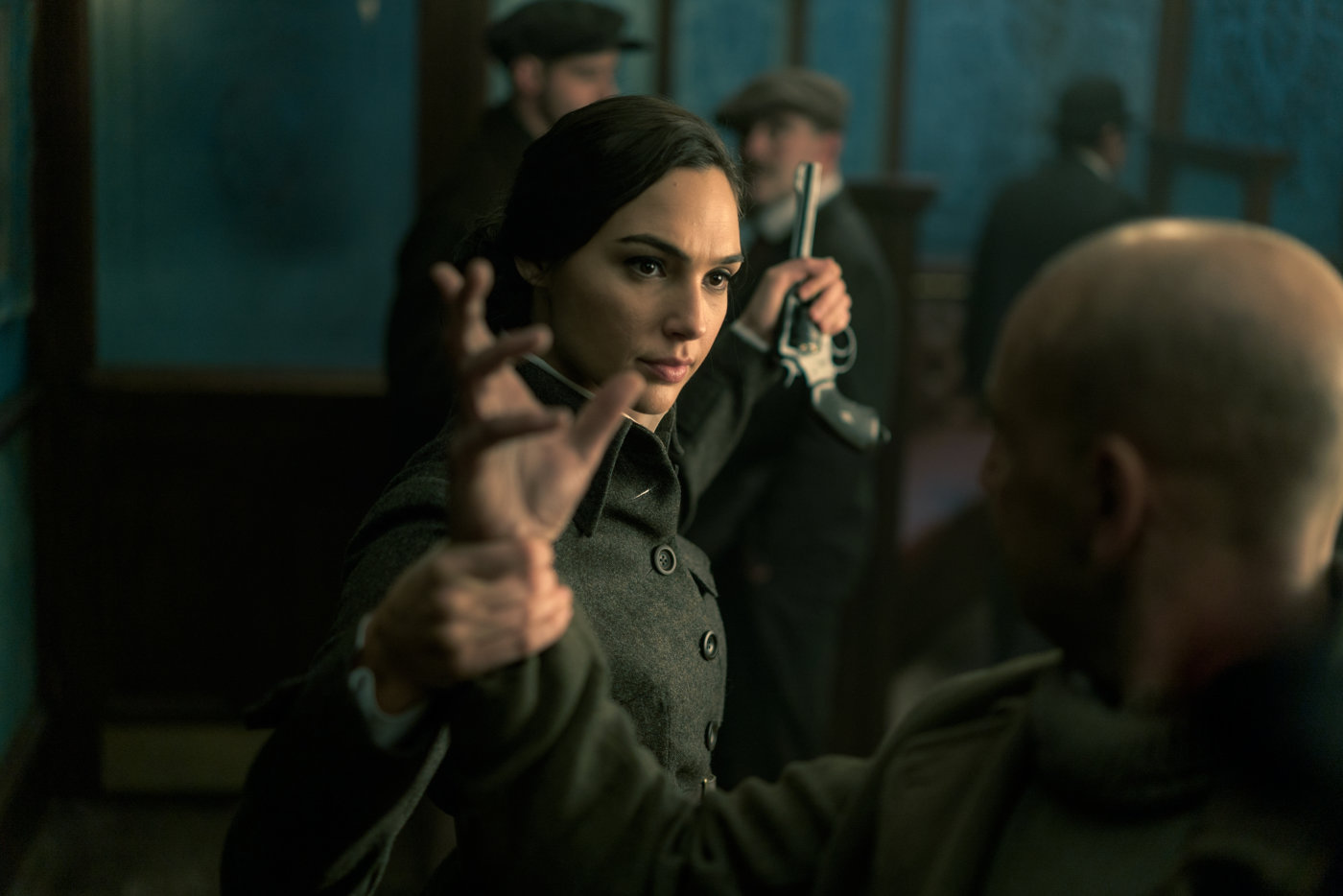Summer, 1969. New York. Huge music festival. What comes to mind? Woodstock, right? Does anything else come to mind? Anything at all? You sure? You know, White People, this ain’t about you, but whenever you /I/we soften or dismiss claims of racism in the United States while reflecting solely upon White history, well, the phrase “dog’s breakfast” comes to mind, and that’s being kind.
Predating Woodstock by almost two months, the Harlem Cultural Festival hosted a series of free Sunday concerts in the summer of 1969 and to those who attended them, they were every bit as important as Woodstock. Stevie Wonder and Gladys Knight both appeared at W. 124th & Madison in northern Manhattan on the very day that man first set foot on the moon; can you guess which event was more important to the people of Harlem on July 20, 1969?
The Harlem Cultural Festival was every bit the same artistic nightmare gamble as Woodstock and in some ways, it was far worse, after all: 1) it came first. 2) it involved Black performers in an all Black part of NYC (i.e. it’s not going to get the benefit of the doubt press-wise), and 3) police chose to skip some of the events. For at least one Sunday, and perhaps more, event security was handled by the Black Panthers. Wrap your head around that … especially if you’re one of the false equivalency folks who equates the Panthers and the KKK.
The footage of this event was dutifully captured for the sake of posterity … and then relegated to a basement for fifty years. This is Black America. This continues to be Black America. As I understand it, Questlove found the footage and put together a movie, and a darn entertaining one, too. Summer of Soul is a narrative of the laundry list of notable performers including Wonder, Knight, Sly and the Family Stone, Nina Simone, Mahalia Jackson, Moms Mabley, The Fifth Dimension, and their impact on the people who viewed them that summer in Harlem.
I suppose there’s a weak argument that Woodstock had more talent, and it did IMHO, but The Fifth Dimension went #1 with Aquarius/Let the Sunshine In in March of 1969; the particular song stayed on the charts well into summer. This is what even White America was listening to in 1969. Ask any Harlem resident which group collected more talent and you might get a different answer. And does the answer really matter? History chose to recognize one these events and ignore the other; I’m guessing the reasons have nothing to do with talent.
Yeah, I’ve gone overboard on the comparison; I’m sorry. The film chose more to hint at the side-by-side rather than exploring it in graph form as I have. Summer of Soul showed in great detail the celebrities and performers of the day and interviewed survivors like Jesse Jackson and Marilyn McCoo fifty years later to recall their experience. For my money, the underlying tone is consistent: if Woodstock was a big deal, why haven’t you ever heard of the Harlem Cultural Festival?
Summer of Soul is an excellent 45-minute documentary squeezed into two hours. Theoretically, everything in  the film is relevant to the Black experience, but just because The Black Panthers did the security job the cops didn’t want doesn’t mean the film needed to go into the background of Eldridge Cleaver, knowwhatI’msayin’? Or maybe it did; maybe I’m not being fair. Maybe this was the exact series of events that prompted Charlayne Hunter-Gault to get the New York Times to switch to using the word “Black.” All I’m saying is you get very good idea for what went down after the first forty-five minutes; I found the rest amusing-but-superfluous.
the film is relevant to the Black experience, but just because The Black Panthers did the security job the cops didn’t want doesn’t mean the film needed to go into the background of Eldridge Cleaver, knowwhatI’msayin’? Or maybe it did; maybe I’m not being fair. Maybe this was the exact series of events that prompted Charlayne Hunter-Gault to get the New York Times to switch to using the word “Black.” All I’m saying is you get very good idea for what went down after the first forty-five minutes; I found the rest amusing-but-superfluous.
What it comes down to is: why wasn’t the Harlem Cultural Festival a celebrated marker in American cultural history? Did it not describe a huge group of people showing exactly how they expressed their feelings about their world through art and emotion? Or, then again, maybe –like Woodstock- it was just a bunch of music groups and some people having a good time.
♪When it’s June and concerts are about
And empty fields are filled with cars
Skin tone will guide the account
Non-white is shipped to Mars
This is on-going
Our “parity” hilarious
Parity hilarious♫
Rated PG-13, 118 Minutes
Director: Questlove
Writer: White history
Genre: Wait. This happened? When exactly?!
Type of being most likely to enjoy this film: Original attendees
Type of being least likely to enjoy this film: MAGA
♪ Parody Inspired by “Aquarius”




